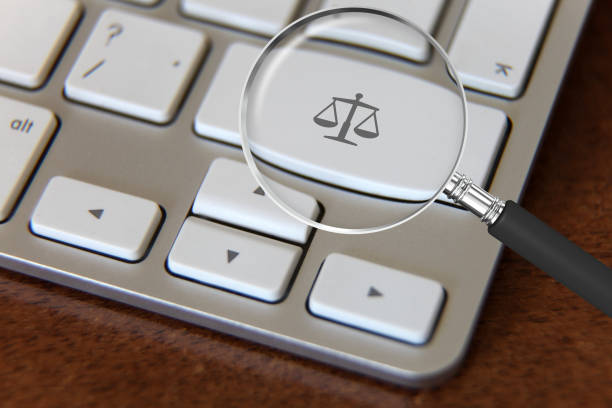Trolling on the Internet Can Amount to Cyberbullying True or False
Trolling on the Internet Can Amount to Cyberbullying True or False
In today’s digital world, the ancient science of Vedic astrology meets technology through tools like online marriage astrology calculators, offering clarity and cosmic predictions with just your date, time, and place of birth. But the real depth of prediction lies far beyond a calculator’s numerical result — it’s in the hands of a skilled astrologer who interprets your chart with intuition, scriptural wisdom, and cosmic observation. That’s where Nayku’s astrology services shine — providing precise, confidential, and personalized online marriage prediction sessions rooted in Vedic knowledge yet adapted for the modern digital seeker. This is not just about “when,” but why and how your marriage will unfold the way it does. Let’s uncover that cosmic mystery step by step.
Introduction
The digital age has empowered people to connect, create, and share ideas instantly. But it has also given rise to troubling phenomena like trolling and cyberbullying. While trolling is often dismissed as harmless mischief or online banter, it can easily cross the line into targeted abuse and psychological harm.
Can trolling amount to cyberbullying? The answer: yes, depending on context, intent, and impact.
This article explores the distinctions and overlaps between the two and examines when trolling becomes cyberbullying – from both legal and ethical standpoints. It also discusses how platforms like Nayku provide support for individuals facing such online abuse.
What Is Internet Trolling?
Trolling is the act of intentionally posting inflammatory, offensive, or disruptive content online to provoke reactions or derail discussions. Trolls often hide behind anonymity, using sarcasm, memes, or misleading content for amusement or chaos.
Common Characteristics of Trolls:
- Provocative and off-topic posts
- Use of humor or satire to mask intent
- Focus on disrupting conversations
- Hiding behind fake identities
While some trolls claim their actions are harmless or humorous, others thrive on causing real distress.
Through Nayku’s online legal consulting services, users are educated about the digital boundaries and the risks of engaging with trolls.

What Is Cyberbullying?
Cyberbullying is the deliberate and repeated use of electronic communication to harass, threaten, or humiliate someone. Unlike trolling, which may be random or attention-seeking, cyberbullying is personal and persistent.
Forms of Cyberbullying:
- Sending abusive or threatening messages
- Spreading false or private information
- Cyberstalking or persistent targeting
- Public shaming on social platforms
Cyberbullying often results in severe emotional consequences, especially among teenagers and vulnerable individuals.
Nayku encourages families and educators to be proactive in recognizing signs of cyberbullying and provides access to online counseling and legal advice when needed.
Trolling vs. Cyberbullying: A Comparison
| Aspect | Trolling | Cyberbullying |
| Intent | Amusement, provocation | Harm, control, humiliation |
| Frequency | Often one-time or sporadic | Repetitive and targeted |
| Tone | Sarcastic, ironic, mocking | Aggressive, threatening, demeaning |
| Target | Random individuals or groups | Specific individuals |
| Legal Standing | Often unregulated or borderline | Often covered under cybercrime laws |
When trolling becomes repetitive, personal, and damaging, it meets the definition of cyberbullying.

True or False: Does Trolling Amount to Cyberbullying?
✅ TRUE – In Many Situations
Trolling can amount to cyberbullying, particularly when:
- It targets a specific individual repeatedly
- The content is abusive, defamatory, or threatening
- It results in psychological harm
- It violates platform policies or national laws
❌ FALSE – In Some Limited Cases
Some one-time trolling acts, particularly those involving impersonal jokes or debates, may not rise to the level of bullying unless they escalate or cause distress.
For instance, through Nayku’s online legal consultations, users can learn about their rights and the digital thresholds that separate free speech from harassment.
Real-Life Examples
1. Teen Harassed on Instagram
A group of classmates repeatedly mocks a student’s appearance, body, and culture. Despite using memes and emojis, the ongoing harassment causes the victim severe depression. This is cyberbullying.
2. Public Figure Mocked with Memes
A politician receives sarcastic posts and criticism. Though unpleasant, this might not be cyberbullying unless it involves threats or defamatory campaigns.
3. Doxxing as a Trolling Prank
A troll leaks someone’s phone number claiming it’s a joke. The victim faces spam calls and stalking. This is legally considered cyberbullying.
Nayku’s legal team can guide you in documenting such incidents and initiating formal complaints.

Legal View: Is Trolling Punishable?
India
- IT Act, Section 66 & 67: Punishes offensive and obscene content
- IPC Sections 354D (Stalking), 499 (Defamation)
United States
- Laws vary by state; cyber harassment is a criminal offense in many
United Kingdom
- Malicious Communications Act and Online Safety Bill cover trolling and abuse
Nayku helps individuals access cyber law experts and draft complaints for platforms and legal bodies.
Psychological Effects of Cyber Trolling
Victims of online trolling-turned-bullying may suffer from:
- Anxiety and panic attacks
- PTSD-like symptoms
- Suicidal thoughts (especially youth)
- Emotional withdrawal
Because trolling happens in public, the shame and damage often feel amplified.
Nayku partners with certified legal consultants to offer discreet emotional support to victims.

Role of Social Media Platforms
Social platforms like Facebook, Instagram, and Twitter have policies to counter trolling and bullying, including:
- Report and block functions
- Community guidelines enforcement
- AI-based content moderation
Still, enforcement is inconsistent, and many cases go unresolved. It often falls on users to push back and seek justice.
Using Nayku’s curated digital literacy tools, parents and children can understand how to navigate social media safely.
How to Respond If You're Being Trolled or Bullied Online
Step 1: Document the Abuse
- Screenshot conversations and usernames
Step 2: Report to Platform
- Use in-app tools to block and report
Step 3: Seek Legal Recourse
- File a police complaint or approach cybercrime portals
Step 4: Seek Support
- Talk to family, teachers, or counselors
Nayku’s online portal connects users with legal advisors who provide one-on-one live consultations with 100% confidentiality.

Final Verdict: True or False?
Trolling on the internet can absolutely amount to cyberbullying when it becomes targeted, aggressive, and psychologically damaging.
✅ Verdict: TRUE (in most real-world cases)
It’s time society treats online behavior with the same seriousness as offline abuse. With growing awareness, stronger digital laws, and support platforms like Nayku, victims no longer need to suffer in silence.
About Nayku
Nayku is an all-in-one online platform for safe digital learning, spiritual support, and legal help. From cyber protection consultations to emotional wellness resources, Nayku supports users in navigating a safe and respectful online journey.
Explore our services to protect your peace, identity, and dignity – online and offline.
If you or someone you know is facing online harassment, don't wait. Visit nayku.com for help today.
Related Articles

Find Best Online Lawyers in Bhopal Near Me
Find the best online lawyers in Bhopal near you for instant legal consultation, expert guidance, and...
Read More
Experienced Lawyers Online Legal Consultations In Bhopal
Connect with experienced lawyers in Bhopal for online legal consultations. Get reliable advice and s...
Read More
Get Professional Advice From Best Lawyers in Bhopal
Find top-rated lawyers in Bhopal offering expert legal advice. Get solutions for family, property, b...
Read More
